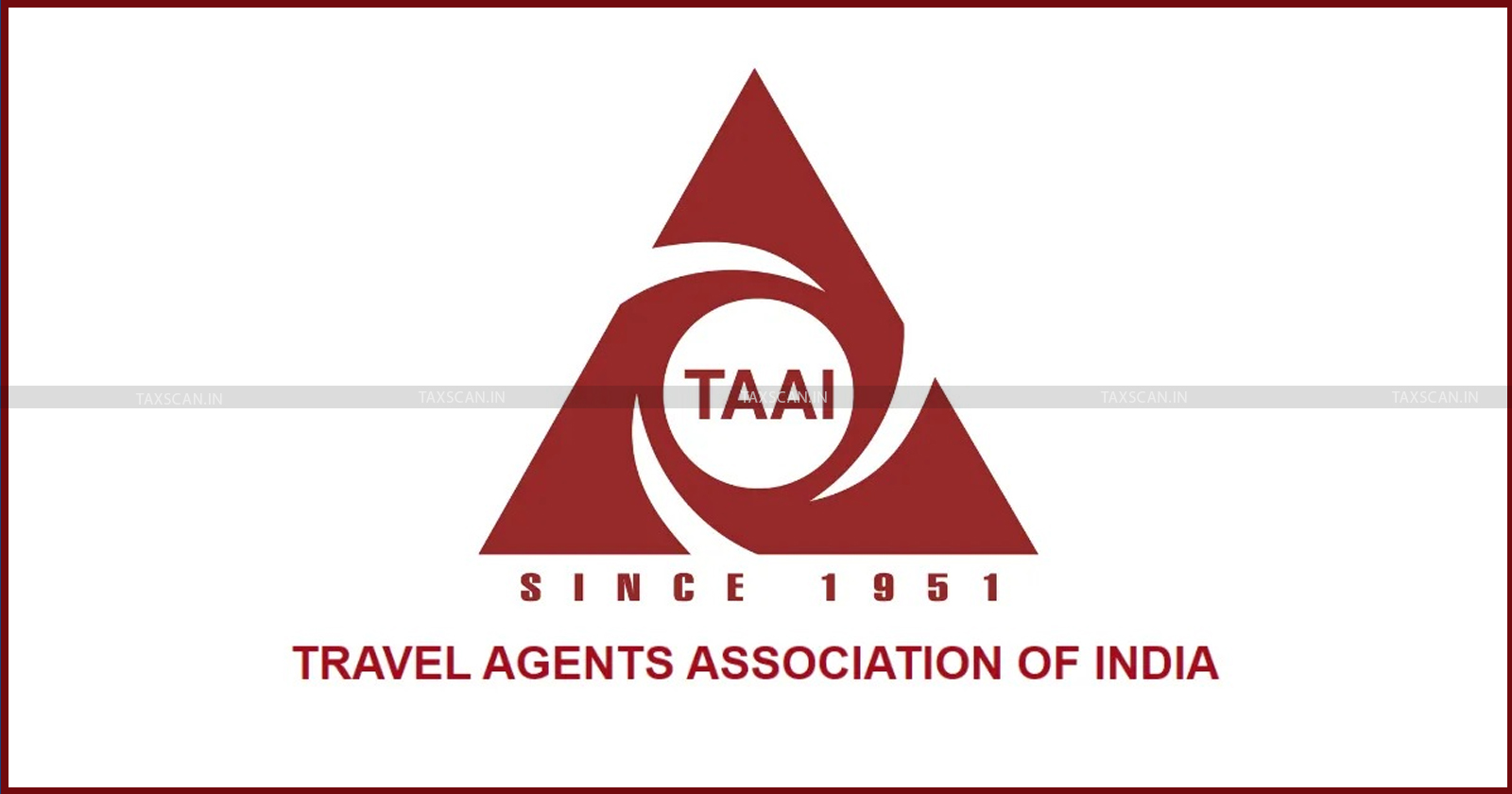Dept of Expenditure does not qualify as an "enterprise": NCLAT dismisses TAAI's allegations of Anti-Competitive Practices [Read Order]
The Tribunal observed that the Appellant had approached Respondent No. 1 by filing a second information on the same facts and circumstances against the same opposing parties with the same prayer which had already been declined in the first information

NCLAT – NCLAT New Delhi – TAAI – Anti Competitive Practices – Travel Agents Association of India – Taxscan
NCLAT – NCLAT New Delhi – TAAI – Anti Competitive Practices – Travel Agents Association of India – Taxscan
The New Delhi National Company Law Appellate Tribunal ( NCLAT ) has held that the Department of Expenditure, Government of India does not qualify as an "enterprise" under Section 2(h) of the Competition Act, 2002, being a “consumer” of air ticketing services. The Tribunal dismissed Travel Agents Association of India ( TAAI )'s allegations of anti-competitive practices.
The Travel Agents Association of India had levelled allegations of anti-competitive practices against the Department of Expenditure, Government of India, that denied market access to private travel agents for official air travel bookings. The Tribunal dismissed the appeal under section 53B of the Competition Act on the ground of res judicata.
Transform Your GST Knowledge: Comprehensive Course - Enroll Now
The Appellant, TAAI filed the appeal under Section 53B of the Competition Act, 2002, challenging the Competition Commission of India's ( CCI ) order dated 8.05.2020. The Appellant had filed information under Section 19(1)(a) of the Act. The Appellant alleged that the Department of Expenditure, Government of India , the Respondent No. 2, Balmer Lawrie & Co. Ltd., Respondent No. 3, and Ashok Travels and Tours , Respondent No. 4 engaged in anti-competitive practices under Section 3(4) and Section 3(1) of the Competition Act, 2002 through exclusionary market practices that denied market access to private travel agents for official air travel bookings.
The Appellant had alleged that Respondent No. 2 had issued an Office Memorandum which contains direction to all government officials including the employees of the public sector companies to exclusively use the services of either Respondent No. 3 or 4 while booking air tickets for official travel and in this manner, foreclosed the market to the private sector travel agents. The appellant had filed an information earlier to challenge memmorandum, which Respondent No. 1 closed vide its order dated 15.09.2010 under Section 26(2) on the ground that Respondent No. 2 is not an “Enterprise” and the Government being the consumer for such services was entitled to make the choice for booking of air tickets through its authorised travel agents only.
Transform Your GST Knowledge: Comprehensive Course - Enroll Now
The Appellant in the second information had prayed that an enquiry under Section 26(1) of the Act may be initiated against Responent No. 2 and 3 to ascertain whether the OMs issued by the R1 have caused an appreciable adverse effect on competition ( AAEC ) in the market in India. The CCI in the impugned order closed the information under Section 26(2) of the Act, leading to the appeal.
The Respondents alleged that the second information filed by the Appellant is barred by the principle of res judicata (Section 11 of the Code of Civil Procedure, 1908) because the same issues had already been decided on merit between the same parties in the first information submitted by the Appellant.
The bench comprising Justice Rakesh Kumar Jain ( Judicial Member ), Mr. Naresh Salecha ( Technical Member ) and Mr. Indevar Pandey ( Technical Member ) observed Respondent No. 2 does not qualify as an "enterprise" under Section 2(h) of the Act. The CCI had stated that the main objective of this OM was to rationalize the expenditure by taking advantage of competition among airlines. Moreover, there was a direct accrual of benefit to the Government of India.
Transform Your GST Knowledge: Comprehensive Course - Enroll Now
The CCI had noted that the OM did not constitute a horizontal agreement/restraint under Section 3(3). It had observed that "the opposite parties and the Government of India are not engaged in the business of identical or similar trade of goods or provision of service." It was further observed that the Government of India, being a consumer, was not producing anything. Thus, could not be said that there was a vertical agreement between the Government of India and the opposite parties.
The CCI had held that the Government of India, like a normal consumer had the choice of availing the service of a particular travel agency. Hence the provisions of Section 3(4) were not attracted. The Appellate Authority in its order dated 26.09.2012 affirmed the order of CCI.
The Appellate Authority had also observed that there was no evidence of 'abuse of dominance'. It had concluded that "the Government of India, being itself a consumer, cannot be said to be a dominant enterprise in the relevant market". Therefore, no case of contravention of section 4 of the Act was made out.
Transform Your GST Knowledge: Comprehensive Course - Enroll Now
The Tribunal observed that the Appellant had approached Respondent No. 1 by filing a second information on the same facts and circumstances against the same opposing parties with the same prayer which had already been declined in the first information. It held that the maxim 'nemo debet lis vexari pro una et eadem causa' would be applicable.
While dismissing the appeal, the Tribunal observed that the Appellant was ordered to deposit Rs. 5 lakhs in the Prime Minister Relief Fund within 15 days.
To Read the full text of the Order CLICK HERE
Support our journalism by subscribing to Taxscan premium. Follow us on Telegram for quick updates


